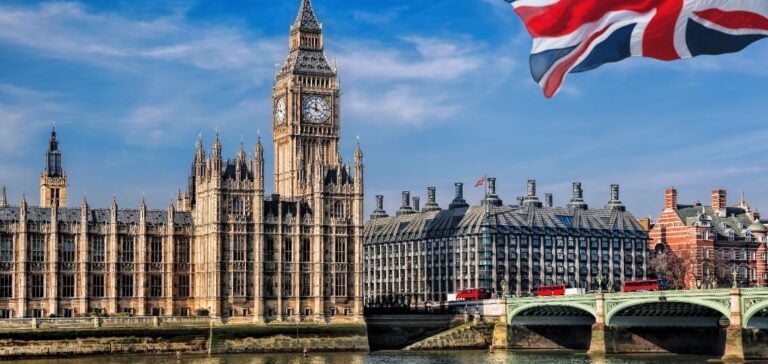Before addressing the COP29 summit in Baku, UK Prime Minister Keir Starmer announced a flagship commitment: reducing the country’s greenhouse gas emissions by at least 81% by 2035, compared to 1990 levels. This new target, praised by several non-governmental organizations, underlines the UK’s intent to reclaim its position at the forefront of the fight against global warming.
The UK also used the summit to call on other nations to scale up their efforts. Keir Starmer, present at the event unlike some G20 leaders, emphasized the importance of enhanced international cooperation. “A global problem requires a global partnership,” he insisted.
A shift in strategy after a period of stagnation
Since taking office in July, the Labour government has shifted gears, placing climate at the heart of its diplomacy. This approach marks a stark contrast with the previous Conservative government, criticized for its lack of engagement, particularly during COP28 in Dubai. The current administration has already lifted restrictions on onshore wind power, accelerated offshore wind projects, and announced the end of new North Sea exploration licenses.
A key initiative of this strategy is the creation of a public enterprise with £8.3 billion (€9.9 billion) in funding to ensure fully decarbonized electricity by 2030.
An uncertain international context
The UK’s announcement comes amid a climate of uncertainty regarding global climate commitments. The potential return of Donald Trump to the US presidency threatens the 2015 Paris Agreement, which already faces implementation challenges. However, Keir Starmer refrained from openly criticizing other nations, instead reiterating the UK’s determination to lead by example.
“The race is on for the future of clean energy jobs. We want to stay ahead of the pack,” he declared, reaffirming his ambition to maintain the UK’s global leadership on climate issues.
Mixed reactions and growing expectations
The UK’s new commitments have been broadly well-received. Greenpeace described the goals as “relatively ambitious,” while urging the government to back them up with concrete actions. The Climate Group welcomed the announcement as a “strong signal” but emphasized the need for a clear implementation plan.
The independent Climate Change Committee (CCC) also called for swift action to meet these targets. It reminded the UK of the need to catch up on its previous promise to cut emissions by 68% by 2030.
With the closure of its last coal-fired power plant in September—a first among G7 nations—the UK appears to be reclaiming its pioneering role. Yet, challenges remain. COP29 could prove to be a turning point if the UK’s ambitions resonate globally.






















